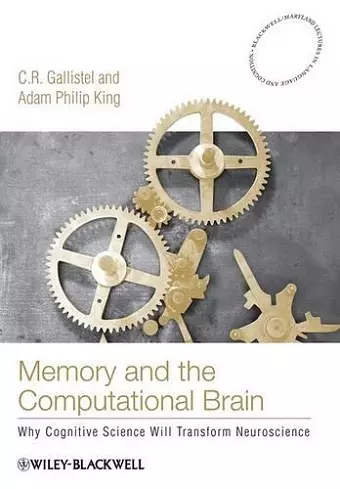Memory and the Computational Brain
Why Cognitive Science will Transform Neuroscience
C R Gallistel author Adam Philip King author
Format:Hardback
Publisher:John Wiley and Sons Ltd
Published:3rd Apr '09
Currently unavailable, and unfortunately no date known when it will be back

Memory and the Computational Brain offers a provocative argument that goes to the heart of neuroscience, proposing that the field can and should benefit from the recent advances of cognitive science and the development of information theory over the course of the last several decades.
- A provocative argument that impacts across the fields of linguistics, cognitive science, and neuroscience, suggesting new perspectives on learning mechanisms in the brain
- Proposes that the field of neuroscience can and should benefit from the recent advances of cognitive science and the development of information theory
- Suggests that the architecture of the brain is structured precisely for learning and for memory, and integrates the concept of an addressable read/write memory mechanism into the foundations of neuroscience
- Based on lectures in the prestigious Blackwell-Maryland Lectures in Language and Cognition, and now significantly reworked and expanded to make it ideal for students and faculty
"The book covers wide-ranging ground--indeed, it passes for a computer science or philosophy textbook in places--but it does so in a consistently lucid and engaging fashion." (CHOICE, December 2009)
"The authors provide a cogent set of ideas regarding a kind of brain functional architecture that could serve as a thought-provoking alternative to that envisioned by current dogma. If one is seriously concerned with understanding and investigating the brain and how it operates, taking the time to absorb the ideas conveyed in this book is likely to be time well spent." (PsycCRITIQUES, November 2009)
"Along with a light complement of fascinating psychological case studies of representations of space and time, and a heavy set of polemical sideswipes at neuroscientists and their hapless computational fellow travelers, this book has the simple goal of persuading us of the importance of a particular information processing mechanism that it claims does not currently occupy center stage." (Nature Neuroscience, October 2009)
ISBN: 9781405122870
Dimensions: 254mm x 180mm x 26mm
Weight: 753g
336 pages